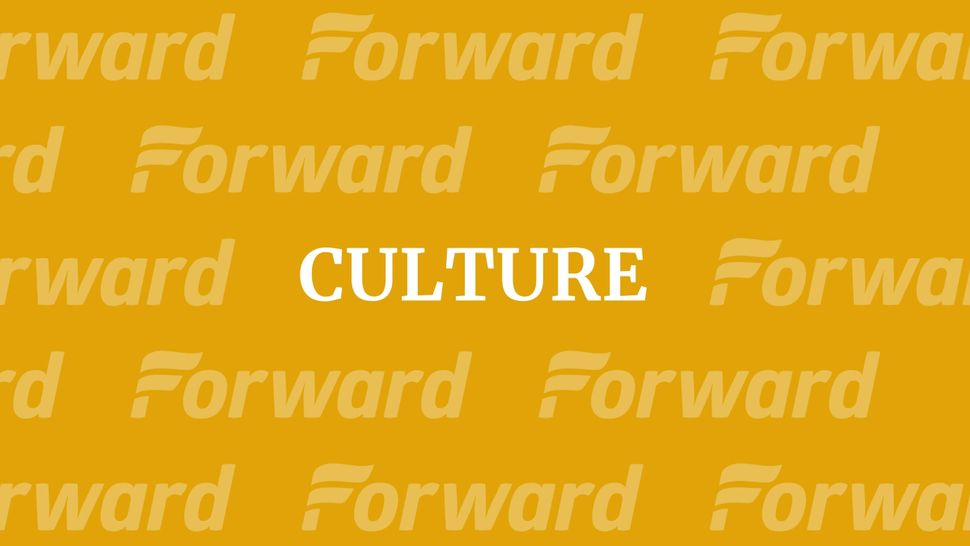Maggie Gyllenhaal’s Top 8 Roles

It’s no surprise that the Roundabout Theater Company’s revival of Tom Stoppard’s “The Real Thing” boasts Maggie Gyllenhaal in the role of Anna. She is a strong, intelligent activist and actor, a key player in this drama about marital love and infidelity. It’s the type of character Gyllenhaal regularly and successfully inhabits.
For the young actress, who recently discovered her birth name is Margalit (Hebrew for Pearl), it adds another star performance in her ever-expanding galaxy. Here are some others:
1. The Honourable Woman
Gyllenhaal played British business executive Ness Stein in this eight-part mini-series that aired originally on the BBC and last summer on the Sundance Channel. Stein, who is Jewish, works hard to build bridges of peace between Israelis and Palestinians, but as soon becomes clear in this spy thriller, it is a complex and difficult task. But the series and Gullenhaal’s performance won raves, with The New York Times saying she played “a principled but conflicted woman whose quicksilver personality alters from hour to hour and flashback to flash-forward.”
2. Crazy Heart
This is my personal Gyllenhaal favorite. She plays Jean Craddock, a single mother journalist who interviews once-popular country singer, Bad Blake (Jeff Bridges). The two start a relationship doomed by Blake’s drinking. Gyllenhaal’s nuanced performance earned her an Academy Award nomination.
3. Hysteria
Gyllenhaal spoke to the Forward as part of her promotion for this film, revealing among other things, her love of Russ & Daughters. The film is about a time in history when women were treated for “hysteria” by physicians who manually manipulated their genital area. (“Hysteria” was considered a legitimate illness until 1952, when the American Psychiatric Association discontinued using the term.) Charlotte Dalrymple (Gyllenhaal) is the daughter of such a specialist and a feminist who hasn’t time for hysteria; she’s too busy running a settlement house for the poor.
4. Secretary
Gyllenhaal played Lee Holloway, an insecure, socially inept young woman who lands a job as secretary to Edward Gray (James Spader). Gray becomes interested in her submissive behavior and, well… The film earned Gyllenhaal a passel of awards and even more nominations. The film essentially established her career.
5. The Dark Knight
Here Gyllenhaal showed she’s comfortable in blockbusters as well as independent films. She reprised the role of Rachel Dawes played by Katie Holmes in “Batman Begins,” the first in the Christopher Nolan trilogy. In this movie she must choose between Bruce Wayne (Christian Bale) and new Gotham district attorney Harvey Dent (Aaron Eckhart). She makes the wrong choice. ‘Nuff said.
6. Stranger Than Fiction
Gyllenhaal plays Ana Pascal, a baker being investigated by IRS agent Harold Crick (Will Ferrell). But Crick is starting to hear a voice, a female voice, narrating his life. It turns out that while living his life he’s also a character in a novel. It sounds like a farce, but was serious, thought-provoking and intelligent.
7. Mona Lisa Smile
A star vehicle for Julia Roberts, who was paid a reported $25 million to play the role of an idealistic art teacher who goes to work in a conservative liberal arts college that really just trains these 1950s women to be wives. Gyllenhaal is Giselle Levy, the campus Jew, who feels out of place in the WASPy environs.
8. Uncle Vanya
Gyllenhaal played Yelena in the Classic Stage Company’s production of Anton Chekhov’s play. It was the first time I’d seen her live and within the confines of the small CSC off-Broadway house, the power of her performance shown through.

I hope you appreciated this article. Before you go, I’d like to ask you to please support the Forward’s award-winning journalism this Passover.
In this age of misinformation, our work is needed like never before. We report on the news that matters most to American Jews, driven by truth, not ideology.
At a time when newsrooms are closing or cutting back, the Forward has removed its paywall. That means for the first time in our 126-year history, Forward journalism is free to everyone, everywhere. With an ongoing war, rising antisemitism, and a flood of disinformation that may affect the upcoming election, we believe that free and open access to Jewish journalism is imperative.
Readers like you make it all possible. Right now, we’re in the middle of our Passover Pledge Drive and we still need 300 people to step up and make a gift to sustain our trustworthy, independent journalism.
Make a gift of any size and become a Forward member today. You’ll support our mission to tell the American Jewish story fully and fairly.
— Rachel Fishman Feddersen, Publisher and CEO
Join our mission to tell the Jewish story fully and fairly.
Only 300 more gifts needed by April 30
























